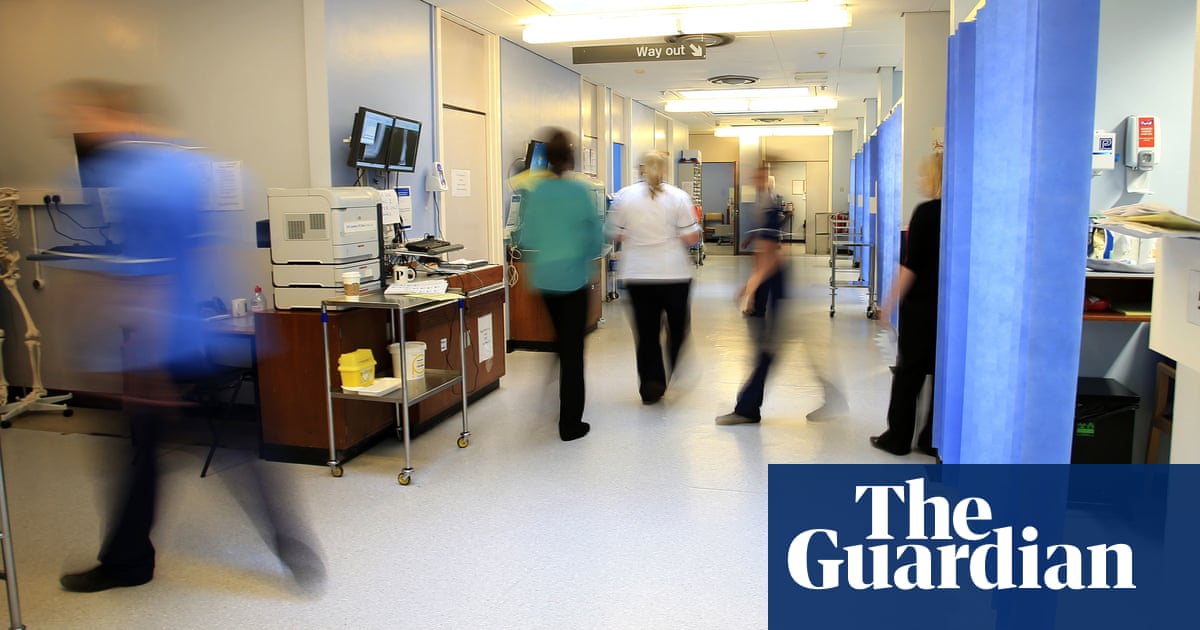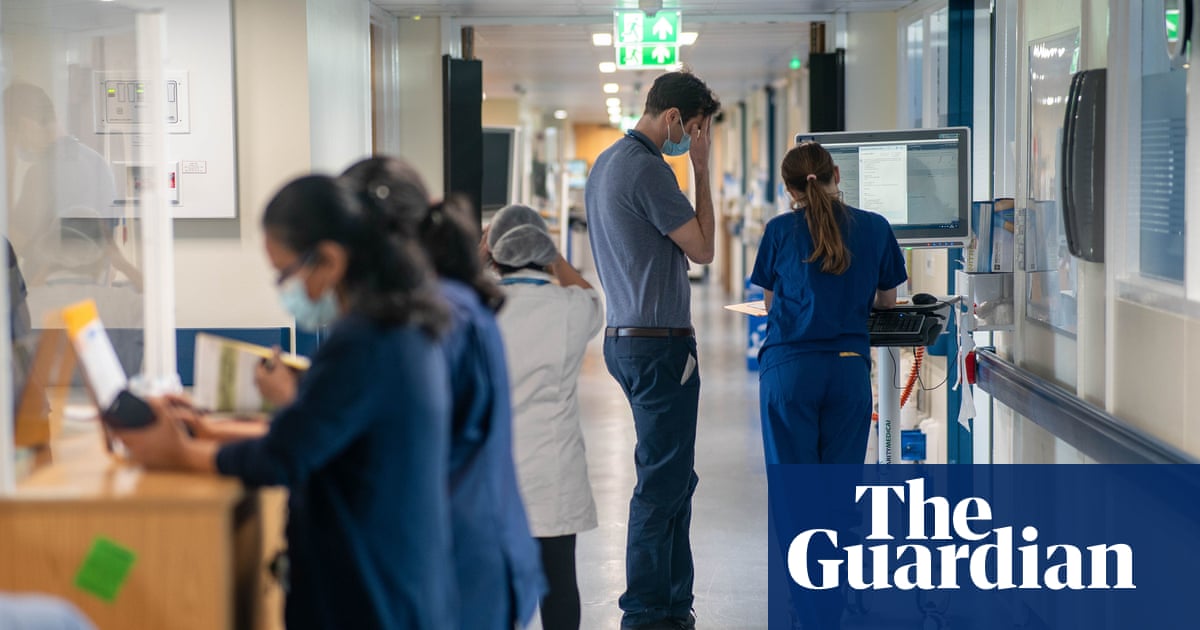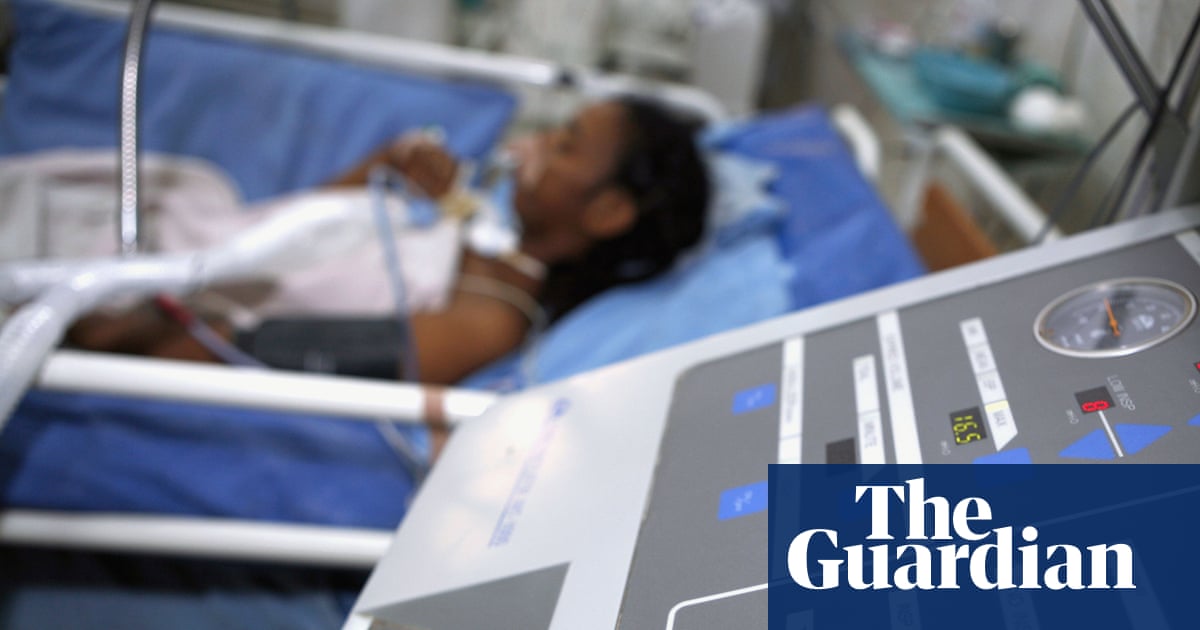
Two in three UK doctors are suffering “moral distress” caused by the enfeebled state of the NHS and the damage the cost of living crisis is inflicting on patients’ health, research has found.
Large numbers are ending up psychologically damaged by feeling they cannot give patients the best possible care because of problems they cannot overcome, such as long waits for treatment or lack of drugs or the fact that poverty or bad housing is making them ill.
A new survey found that 65% of doctors overall, including nearly four in five (78%) GPs and more than half (56%) of hospital doctors, have experienced “moral distress” as a direct result of situations they have encountered working in the NHS.
Seeing patients with malnutrition or hypothermia, or stuck on trolleys in A&E corridors asking for help or forced to choose between heating their home or getting a prescription dispensed are among the events triggering their distress, medics said.
“There’s barely a doctor at work in the NHS today who doesn’t see or experience this distress on a daily basis,” said Prof Philip Banfield, the leader of the British Medical Association.
The NHS is “impossibly overstretched”, has thousands of vacancies for doctors and has a quarter fewer doctors a head of population than Germany, he added.
“In practice that means we can almost never give the standard of care we would want, only ever the care we can manage. That takes its toll, as we see here,” Banfield said.
“Moral distress” is the unease doctors feel when they are unable to ensure a patient gets the speed, quality or type of care that their skills, training and judgment tell them the sick person needs. It captures their frustration at their inability to discharge their professional duties properly.
The findings are from a survey of 1,671 doctors across the four home nations undertaken by MDDUS, a medical defence organisation.
The survey paints a stark picture of widespread unhappiness among the NHS’s medical workforce that is so acute that it is leaving many doctors sad, angry or depressed. Their distress is leading them to have rows with loved ones, eat unhealthily, drink more or have relationship difficulties.
Asked what lay behind their distress, one medic said: “The NHS has apparently abandoned clinical, personal and moral safety as ‘business as usual’.”
Another referenced “the inability to deliver the care I want to due to the strain on the system”. A third cited the “constant burden of wanting to do more for patients without resources”.
The findings come amid concern that working in an NHS that is routinely overstretched is taking a heavy toll on the wellbeing of its staff, who in England alone took 6m days off sick last year due to stress, anxiety and other mental health problems.
Others cited watching patients struggling with mental health problems or largely avoidable illnesses linked to their lifestyles such as diabetes and obesity or being forced to consider going private because care delays are now so common across the NHS.
Overall more than four out of five (83%) UK doctors surveyed said that “the current challenges facing the NHS are responsible for my sense of moral distress”. They identified bed and staff shortages, patients’ difficulty accessing treatment quickly and the mismatch between the growing demand for care and the overstretched NHS’s inability to meet it as key reasons for their feelings.
Many medics are feeling “burnt out and hopeless” and seeing their wellbeing decline as they become weighed down with anger, sadness and depression, and having arguments with friends and family, as they process the realities of working in the NHS.
Asked what lay behind their distress, one said “the inability to deliver the care I want to due to the strain on the system”.
“The results reveal the full extent of the psychological damage a worryingly large number of doctors experience because of problems they encounter in their working lives that they feel powerless to fix,” said Dr John Holden, the chief medical officer of MDDUS, which undertook the research among 1,671 doctors in the four home nations.
“This research paints an alarming picture of the impact on both doctors’ professional practice and personal wellbeing.
“The impact moral distress has on emotional wellbeing should not be underestimated. It erodes a doctor’s passion and resilience, leaving them feeling burnt out and hopeless,” added Holden.
Almost half (47%) of the doctors surveyed agreed that “the impact of the cost of living crisis is responsible for my sense of moral distress”. Medics cited examples of how patients being unable to afford to eat a healthy diet or heat their home properly was leading to illnesses such as obesity and breathing problems.
The survey found that:
72% of doctors said being unhappy at work had affected their mental health.
85% had ended up with fatigue, 77% with worry and 61% feeling sadness.
61% felt angry or resentful because of their moral distress.
In addition, 70% had trouble sleeping, 68% developed unhealthy eating habits, 50% had rows with friends or relatives and 40% had relationship problems because they were unhappy at work.
Two out of five (40%) said dealing with cases involving “moral distress” had had such an impact on them that they had considered quitting medicine, while 25% had thought about retiring early.
Doctors also cited hostility and abuse from patients and the difficulty of meeting their expectations of the care they would receive as other sources of “moral distress”.
One said that, since the Covid pandemic: “It is literally impossible now. People have so many psychosocial issues post-pandemic, have such long lists of issues that have built up, the referral times to secondary [hospital] care are horrendous, giving a good service feels unreachable.”
Overall 53% of doctors said they thought that things are either worse or much worse in the NHS than before Covid hit in early 2020.
Thea Stein, the chief executive of the Nuffield Trust health thinktank, said: “These figures provide yet more evidence of the toll that the extreme pressures of the NHS are having on healthcare professionals. Ultimately if doctors continue to feel stressed and burnt out this will result in staff being driven out of the NHS.”
Ministers should consider gradual write-offs of student loans for those training to become health professionals to combat the high dropout rates, Stein added.
The Department of Health and Social Care did not comment directly on the findings.
A spokesperson said: “We take the health and wellbeing of NHS staff incredibly seriously, with NHS England putting in place a package of support which focuses on creating healthy working environments and encouraging staff to discuss issues they are facing.
“This is supported by the NHS Long Term Workforce Plan which sets out actions that must be taken to build an NHS workforce able to meet the changing needs of the population over the next 15 years.”












